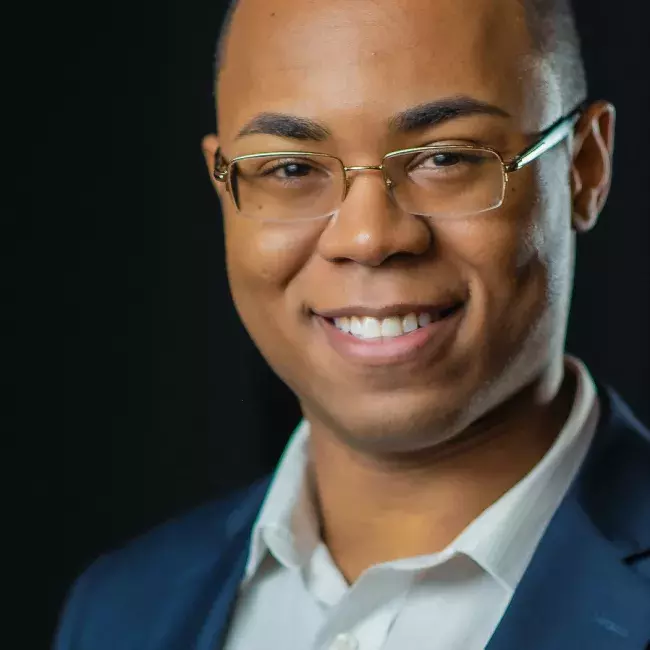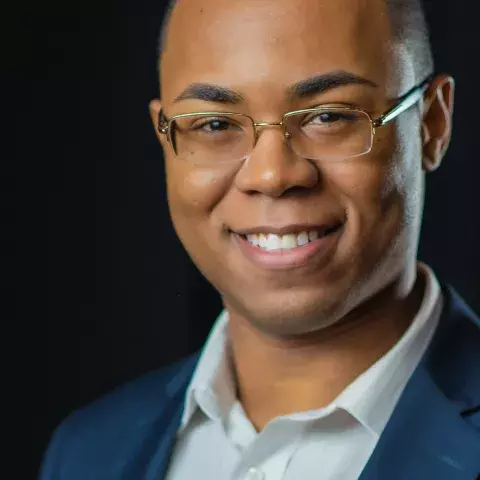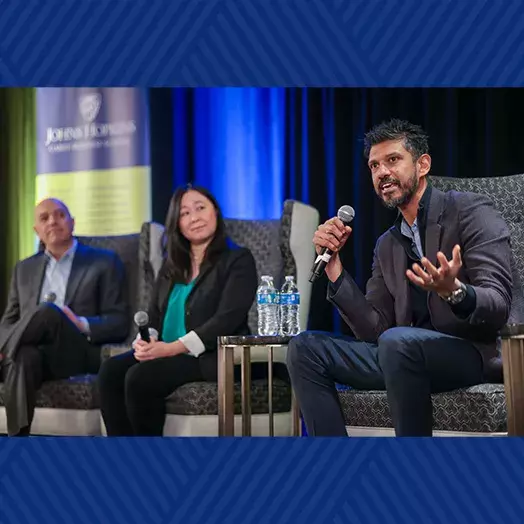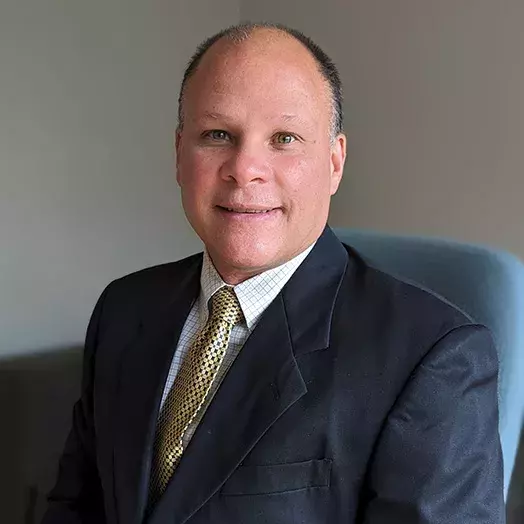Carey alumnus Stephane Labossiere is delivering critical services to underserved, at-risk groups during the COVID-19 pandemic.

Recent Carey graduate on front lines of COVID-19 response in New York City
Early on, Stephane Labossiere (MSHCM 2018) knew he wanted to enter the health care field. Now, less than two years after graduating from the Johns Hopkins Carey Business School with an MS in Health Care Management, he finds himself a foot soldier in the fight against COVID-19 in New York City, the nation’s epicenter of the pandemic.
Labossiere, who also holds a Master of Science in Public Health and Behavioral Sciences from Columbia University, is a community outreach coordinator with the New York Mayor’s Office of Immigrant Affairs (MOIA). Additionally, he is a geriatric research assistant at Community Healthcare Network (CNH), also in New York City.
“Weekly, I reach out to many nonprofit organizations and I am responsible for conducting a COVID-19 webinar,” said Labossiere, describing his work with MOIA. I update constituents on how the pandemic has impacted our programs, and what ramifications they can expect. Additionally, I share a presentation on the current resources [available to underserved individuals].”
Those resources, extremely important before the pandemic, are now absolutely critical for the health and safety of thousands of New Yorkers, whose cases and needs are in danger of falling through the cracks of traditional services. They include, but are not limited to, employment resources, food assistance, health and medical assistance, financial assistance, rent arrears, housing and public assistance, and emotional support and spiritual care.
In addition, Labossiere continues to reach out to immigrants who did not receive a stimulus payment as part of the comprehensive Coronavirus Aid, Relief, and Economic Security (CARES) Act recently passed by Congress, even though many file annual tax returns. “I am currently taking their information and referring them to the Open Society Foundation for assistance,” he explains.
“To date, I am proud to say that I have helped hundreds of coronavirus patients, in addition to many others, through these resources,” said Labossiere, whose research interests include health care quality measurement and improvement, health policy analysis, and the development and assessment of materials and public health interventions.
Labossiere’s passion for public health originally stems from personal tragedy. When he was 12 years old, his mother succumbed to a serious illness in their native Haiti, due in part to a lack of sophisticated medical resources. He was thus introduced at an early age to the scourge of health care disparities and the often tragic results.
“If I was going to be the leader I aspired to be, I knew that I needed a comprehensive business background in health care. When I reached out to Carey, I liked what they had to offer.”
Stephane Labossiere , MSHCM 2018
Labossiere’s studies at Carey “opened my eyes to the need for understanding of numbers for budgeting and accounting to provide needed health care. If I was going to be the leader I aspired to be, I knew that I needed a comprehensive business background in health care. When I reached out to Carey, I liked what they had to offer. Also, knowing that I would have access to programs at the Johns Hopkins Bloomberg School of Public Health made it the perfect fit. It was one of the best decisions I have made professionally,” he added.
“I wanted to understand how to provide better health care for people, especially from a preventive perspective,” Labossiere continued. Among the issues he identified as most crucial were lack of access to care, along with a dearth of epidemiological data concerning such diseases as HIV/AIDS and cancer, in particular in developing nations.
While at Carey, his work with the Bloomberg School of Public Health produced two grants that enabled him to return to Haiti to work with that country’s Ministry of Public Health, as well as similar work in India and Colombia.
Labossiere, who was selected from among 1,300 applicants to be one of the 47 Columbia Public Health Scholars funded by the Centers for Disease Control and Prevention, has ambitious plans to help improve public health in the post COVID-19 era. Among them (and leaning heavily on the health care management skills he acquired at Carey), he plans to build the Haiti Community Health Center (HCHC) – a medical clinic that will provide health services at little to no cost to its patients. Additionally, Labossiere intends to start a scholarship fund for students in Haiti and in the United States, which would allow deserving students to study and serve in impoverished communities and countries in the areas of public health or medicine.
Labossiere’s work on the COVID-19 front, as well as his plans for the future, mirror his dedication to helping global populations. Although “passionate about individualized medicine at first,” he “realized you can make a profound difference in the (public health) forefront, as a researcher or as someone who can sit at the table, so to speak.” An internship with the Centers for Disease Control (CDC) the year prior to starting graduate school convinced him of the soundness of his path. As he remembers thinking: “This is the right thing for me; this where I’m going to go.”
Carey, as it turns out, has proven to be a pivotal point on that journey.



